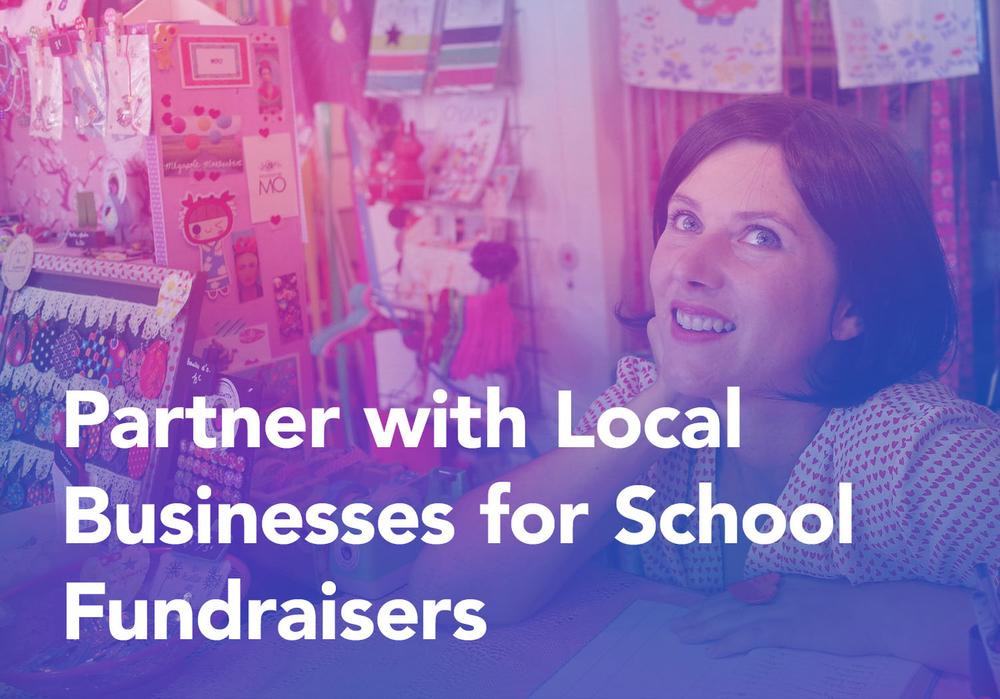As a school fundraiser, you know how much work goes into securing each dollar of funding for your students. While fundraising is hard work, you could be missing out on an opportunity to make achieving your revenue goals easier: corporate philanthropy.
Corporate philanthropy is a broad term that refers to the many ways a for-profit business might give back to its community, support charitable causes, and promote social good. While this support is often in the form of financial gifts, businesses may also offer other types of gifts. For example, if your school is planning a silent auction, a local dog daycare might donate a basket of pet care items and a voucher for its services to appeal to any pet owners who attend.
In this guide, we’ll dive deeper into the world of corporate sponsorships and explore strategies your school can use to find a compatible partner. Let’s begin!
Benefits of a Corporate Sponsorship
As Funds2Orgs’ guide to fundraising events explains, “Companies can financially support your event to cover operational expenses in exchange for you promoting their company.” Of course, there are other ways a corporate sponsor might support your fundraising efforts. For example, they might donate items or encourage employees to volunteer at your school.
When your school partners with a business, you’ll see benefits like:
- More financial support. If the company donates money to your school, you can enjoy the benefits of having more cash on hand. A donation can simplify planning for your school fundraisers because you won’t have to worry about securing money for the event ahead of time. Additionally, you can be more flexible when you have reliable, liquid funding to fuel your campaigns.
- Better resources for students. While funding can also provide better resources for your students (e.g., purchasing new classroom supplies or textbooks), some companies might provide in-kind donations or educational opportunities, too. For instance, a contracting company might offer to upgrade your school’s playground at a discounted price.
- Community engagement. The company you work with likely has existing relationships with other organizations in your community, just like your school does. Swapping contacts can benefit you and your partner company, giving you access to an untapped network of potential connections, collaborators, and supporters.
Businesses may also help staff and students develop their skills further. For example, the head of a local marketing company might provide teachers with tips on effective communication. That marketing company could also organize a workshop with your high school students to teach them about social media marketing, preparing them for potential college internships and marketing careers.
Our Software Elevates Your Silent Auction
Tips for Finding Corporate Sponsors
Look for mission-aligned businesses.
To find the best match for your corporate sponsorships, start by looking for organizations in your community that share your school’s values. To get some ideas, you can browse:
- Your local Chamber of Commerce directory
- Other online business directories (e.g., Yellow Pages or Yelp)
- Social media
- Industry association resources (e.g., associations for entrepreneurs or small business owners)
- Local media like newspapers
- Alumni networks
Don’t be afraid to expand beyond obvious choices like bookstores, tutoring centers, and other education-based businesses. Consider other values your school might hold like respect, compassion, and integrity—you’ll find that many businesses, from dog boarders to construction companies, likely share and embody those values every day.
To learn more about these prospective candidates, browse their websites and explore any impact reports they have. For example, Disney creates a social impact report to summarize the work it does to promote social good throughout the year.
Be flexible.
Once your school has a list of possible partners ready, it’s time to start reaching out to these candidates. Take this time to ask them questions to ensure the partnership will be a good fit. And most importantly, ask the business if they would like to support your school.
Making this ask can feel intimidating, but being prepared for a little friction can help you end the conversation with a successful deal. In case the potential partner declines your request for a monetary donation, consider the following backup plans:
- Lowering your ask. If you asked for a specific sum, lower the ask. If you’re unsure about what amount the business would agree to, encourage them to give whatever they are comfortable with. After all, you can always encourage them to increase that amount for future partnerships.
- Offering tiered partnership plans. Tiered partnerships give businesses more flexibility. Typically, each tier offers corresponding “benefits” for the business. For example, a $100 donation might fall within the lowest tier and include featuring the business’s logo in the event brochure. A gift of $1,000 would push that business into the “premium tier,” earning them a feature on the brochure, other event signage, and a shoutout from the event emcee.
- Suggesting other forms of support. If a business is unwilling or unable to give your school monetary gifts, let them know about other ways they can support you. Perhaps you need more volunteers to help out at your school’s upcoming auction. Or, maybe they could donate tangible items, services, or discounts.
Sometimes, the answer will simply be “no,” and that’s okay. Accept these rejections gracefully and offer to keep in contact with the business—you never know when that relationship might come in handy (or when they’ll be ready to support you).
Set clear expectations early.
Setting expectations at the beginning of the partnership will help everything run smoothly from start to finish.
Discuss and agree on key items like the overall goal of the partnership, each party’s roles and responsibilities, how and when you’ll communicate, and financial commitments. Make sure to specify what donations you expect to receive, when those donations will be made, and how the company expects you to use them.
For example, perhaps a pet business is sponsoring your school’s dog-friendly 5K and having its staff members serve as volunteers. In this case, you’ll need to outline donation details and work out a schedule for the volunteers to follow.
Show appreciation.
Most schools put their corporate partners in front of new audiences in exchange for their contributions (think including their logo front and center on your event banner or campaign landing page). But you should also show appreciation for their support with a heartfelt thank-you message to develop a strong, lasting partnership.
Consider ideas like:
- Handmade thank-you cards from your students
- eCards and other digital communications, especially for virtual fundraisers like online auctions
- A permanent spot on your partnerships web page
- Dedicated corporate partner appreciation events
- Impact reports that provide recognition and explain how their support helped your school
Regardless of the idea you choose, go above and beyond by personalizing the message. Address the business and the contacts you interacted with, and mention the specific contribution they made to your school. Remember to sign off with the name of the teacher, parent, or administrator the business interacted with during the partnership.
Make Your Next Silent Auction a Knockout
Securing partnerships with local businesses does more than just provide more funding to your school—it grows your network of community support. This cements your school as a core institution within the community and gives you a diverse, reliable network of businesses that are ready to champion your school and its students.




